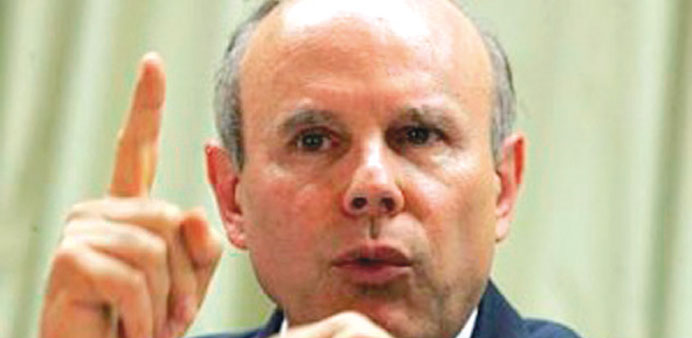Reuters/Rio de Janeiro
Brazil’s economy is gaining force, industrial output is rising and inflation is falling, showing that concerns about the country’s direction are misplaced, Finance Minister Guido Mantega said in the Estado de S. Paulo newspaper.
Mantega also said he’s confident that the economy’s solid foundations, bolstered by efforts to cut taxes and spending, will eventually force the Standard Poor’s rating agency to reverse its decision on Thursday to downgrade the outlook for the country’s foreign debt rating to “negative” from “stable.”
“If it depends on the performance of the Brazilian economy, S&P will have to change their outlook,” he said.
The S&P downgrade came the same week that Brazil announced that gross domestic product grew a less than expected 0.6% in the first quarter and that inflation jumped 6.5%, the upper limit of the central bank’s target range, in the 12 months ending May 30.
S&P based its downgrade on weakening government revenue and spending levels and slow economic growth. Brazil has underperformed many rival emerging market economies in recent years.
In response to higher inflation, Brazil’s central bank on May 29 raised its benchmark interest rate to 8% from 7.5%. Even some economists close to the Brazilian government said this week that the only way for Brazil to regain economic credibility is to ease back on its stimulus programme and adopt austerity in government spending.
Mantega though discounted his critics and pointed to a range of data that he says show the economy’s robust and improving health. Industrial production, he said, is rising strongly and will continue to rise, he said.
Financing costs have fallen, he added, and inflation’s recent gains were temporary, based on food prices that are beyond the government’s control.
“Industrial profit margins have grown in the last two quarters,” Mantega told Estado. “There have been a return of ‘animal spirits’ and practically all April economic indicators show the expansion of the Brazilian economy.”
Supermarket sales rose for a fourth straight month in April, while highway truck traffic, oil and gas output, cement sales and automobile production were all higher, he said.
He dismissed critics of the government’s policy. “You don’t make an omelet without breaking eggs and we broke some eggs to do important reforms,” he said. “Even if you look at the question of currency devaluation that happened last year, it made importers unhappy.
“There it is, as we say, those left behind by the reforms are the ones who are unhappy,” he said.

